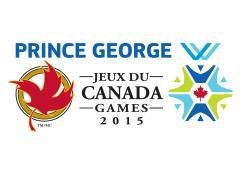The 2015 Canada Winter Games ended with a $200,000 surplus, Games organizers told city council on Monday.
It was just one of several indicators organizers cited to show the 18-day, multi-sport event was a national success.
"We're in the black," said Games chairman Anthony Everett, in reference to an expense budget that topped $46-million.
The first priority, said Everett in his final Games presentation to city council Monday night, was getting the community engaged - and Prince George delivered.
"This vision we lived it for two weeks, if not for five years or longer."
He and Games CEO Stuart Ballantyne got a standing ovation from the public gallery and city council for their work.
"It was a constant barrage of good news stories," said Coun. Garth Frizzell of the local and national response. "I'm proud to be a part of it."
The report to council said that the local economic impact was $83-million for a total of more than $123 million when the rest of the province is included. The operating expenses ended up $2 million below the amount approved the city in the bid budget, Everett said.
Other successes included ticket sales and event attendance, the 4,800 volunteers - or "green jackets" as they soon became known, venue preparation, merchandise sales and a strong medical program.
The one blip in the fundraising scale was private sector sponsorship at over $7-million, representing 88 per cent of the goal.
The public sector came up with $37 million of the Games funding, five per cent more than originally projected
"Public sector really really delivered for us," said Ballantyne, who noted it was difficult to get corporate Canada to consider sponsorship in northern B.C.
Ticket sales, by contrast, were far above the $1-million mark at 164 per cent of the projected number.
"Ticket sales were amazing," said Ballantyne, who is headed to Edmonton for his new job as senior vice president of operations of Oilers Entertainment Group.
"That's the community."
Coun. Albert Koehler praised the city's support for the event.
"There was an energy which was really great to experience and you made it this way," said Koehler, adding he hopes that feeling can be resurrected.
"You showed us what can be done."
But going into the Games, there was some worry around how Prince George would present itself as a host city, said
Coun. Susan Scott.
"Those concerns evaporated within the first day," she said. "What I heard was across the board support."
The presentation also covered challenges that cropped up including changes in local government in the months before the two-week February event.
"You have to educate a whole new set of people," said Everett, something they hadn't anticipated.
"You're quite correct," said Mayor Lyn Hall later. "We had a little catchup to do."
Hall recounted election night in November when his daughters asked him: "Dad, do you realize you'll be the mayor for the 2015 Games?'
"To be mayor and council for those 2015 games was an absolute privilege for each of us."
The UNBC faculty association strike was also referenced in the report as a challenge, though faculty agreed to not to picket the campus, which was the site for the closing ceremonies.
The weather proved problematic, with severe cold weather just prior to the Games followed by a lack of snow at the mountain venues and warm temperatures which saw the speed skating competition moved to Fort St. John rather than the Outdoor Ice Oval.
"It's very sad that we only got one day in but that day was exceptional," Everett said.
Legacy projects were featured in the presentation: Kin 1 Arena with its Olympic-sized ice, new dressing rooms and seating; Tabor Mountain's ski and snowboard cross course, slopestyle terrain park, and upgraded moguls; new alpine ski racing course at Purden Ski Village; civic plaza work; biathlon range and penalty loop at Otway Nordic Ski Centre; and the Outdoor Ice Oval.
Other highlights included the free transit initiative led by UNBC students, which translated to 78,000 trips and a 40 to 50 per cent increase in ridership over the 18 days.
Canada Winter Games by the numbers
18 - Days for the Canada Winter Games
292 - Performing artists at Cold Snap Festival
4,800 - Event volunteers
9,500 - Litres of chocolate milk for athletes
74,000 - Meals at the Civic Centre
78,000 - Free transit rides through the Pave the Way initiative
$200,000 - Games surplus for Legacy Fund
$46,949,484 - Total Games funding
$83,244,615 - Local "industry output" or economic impact



